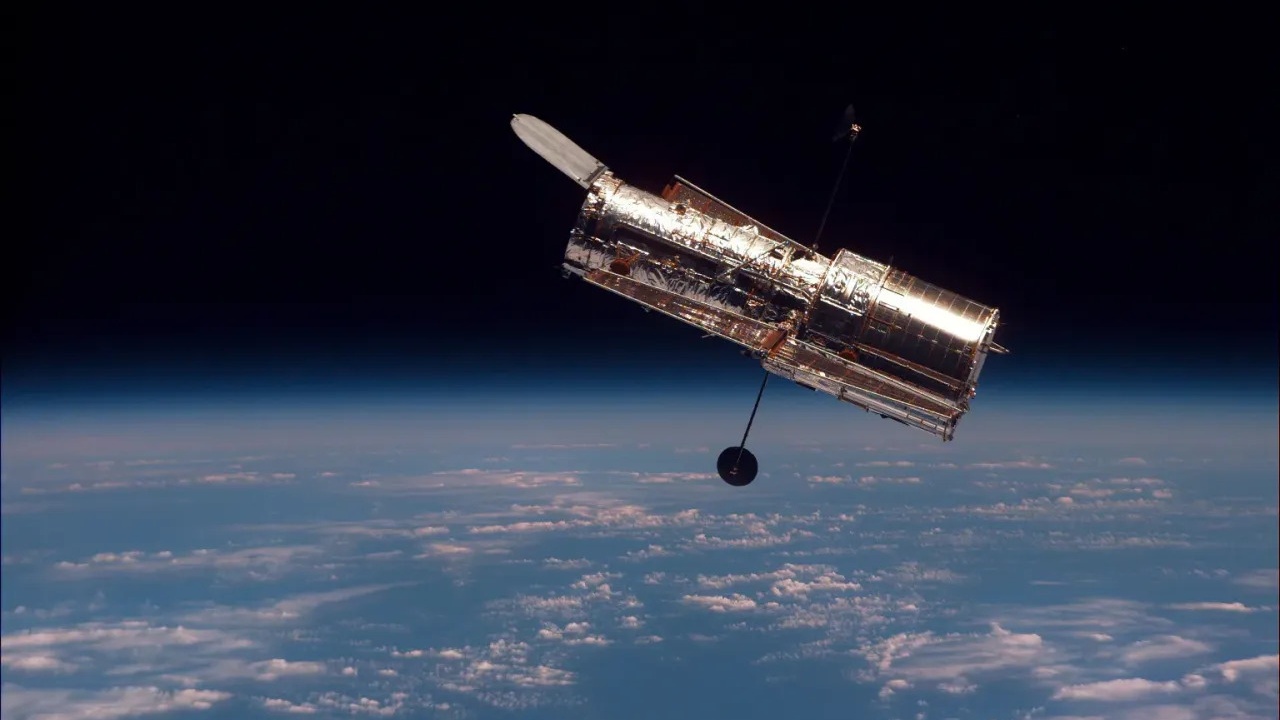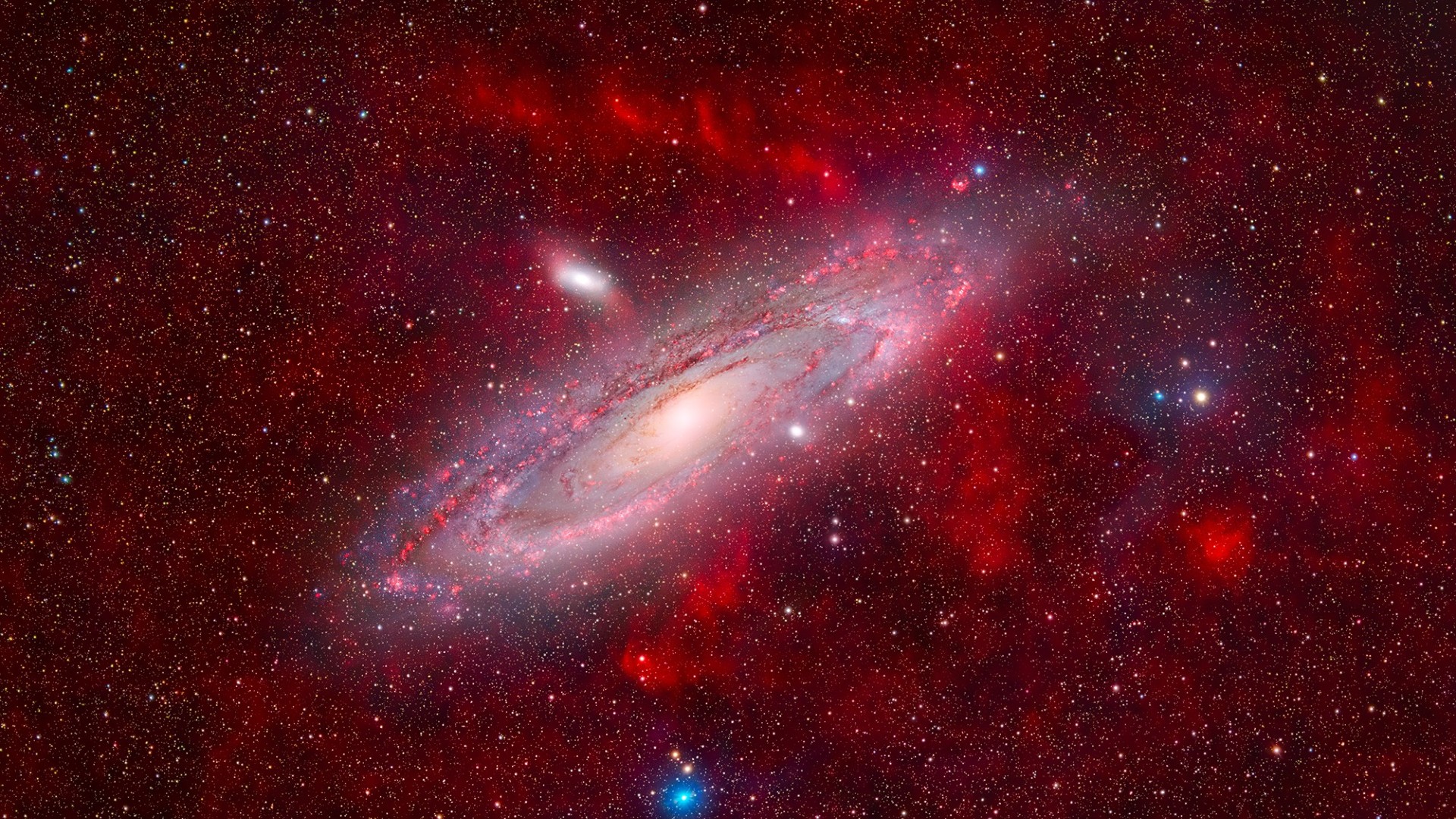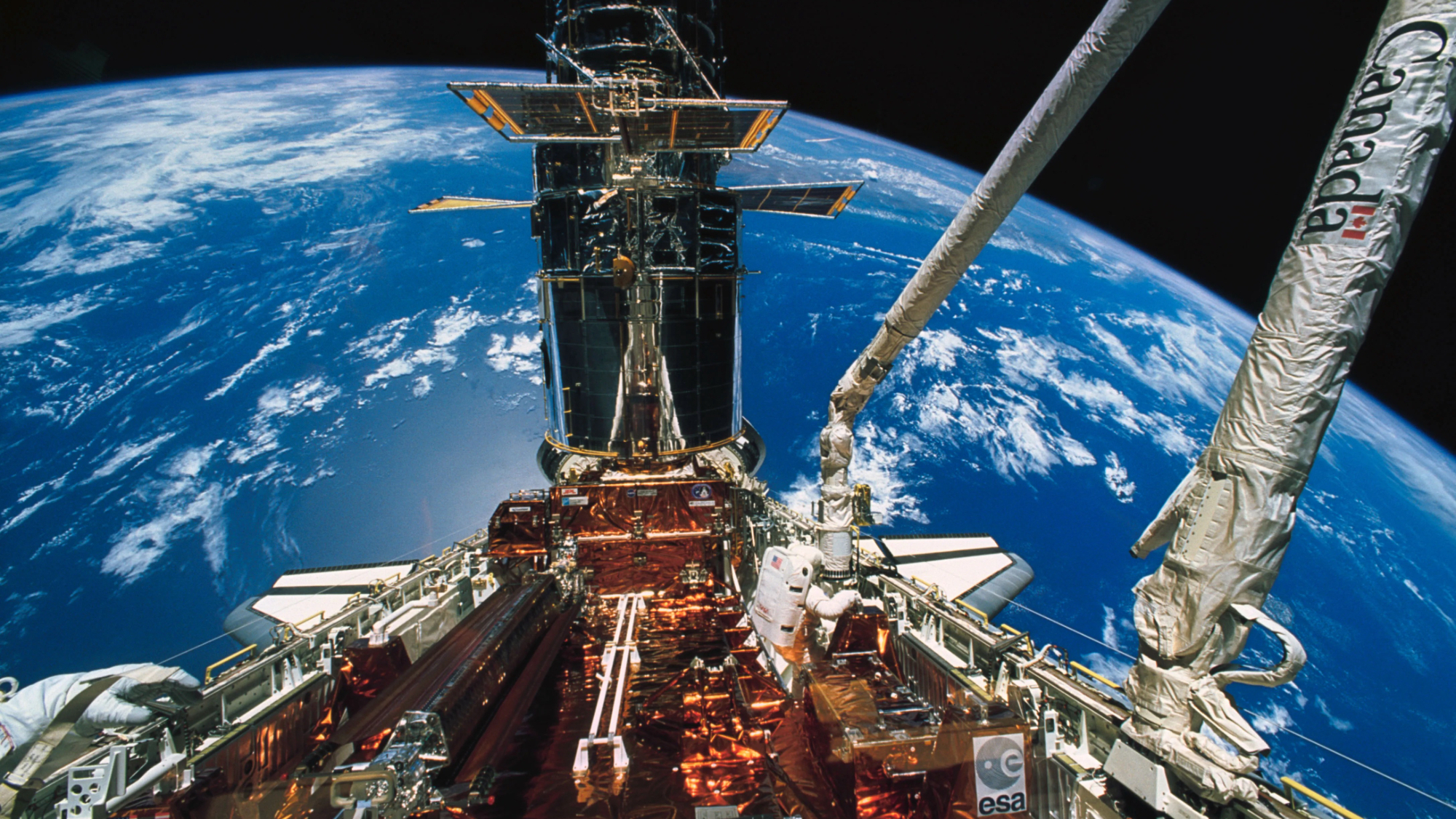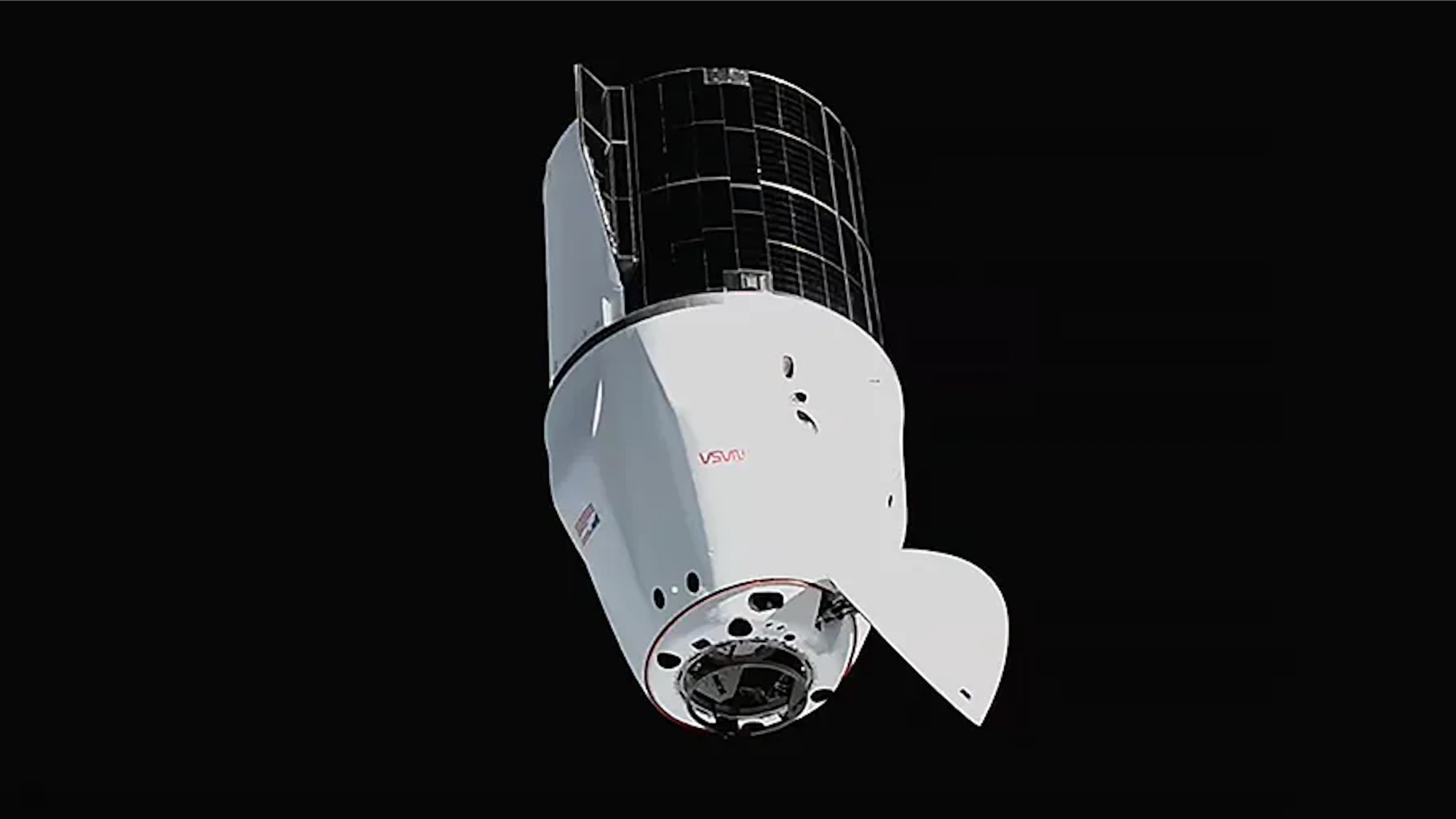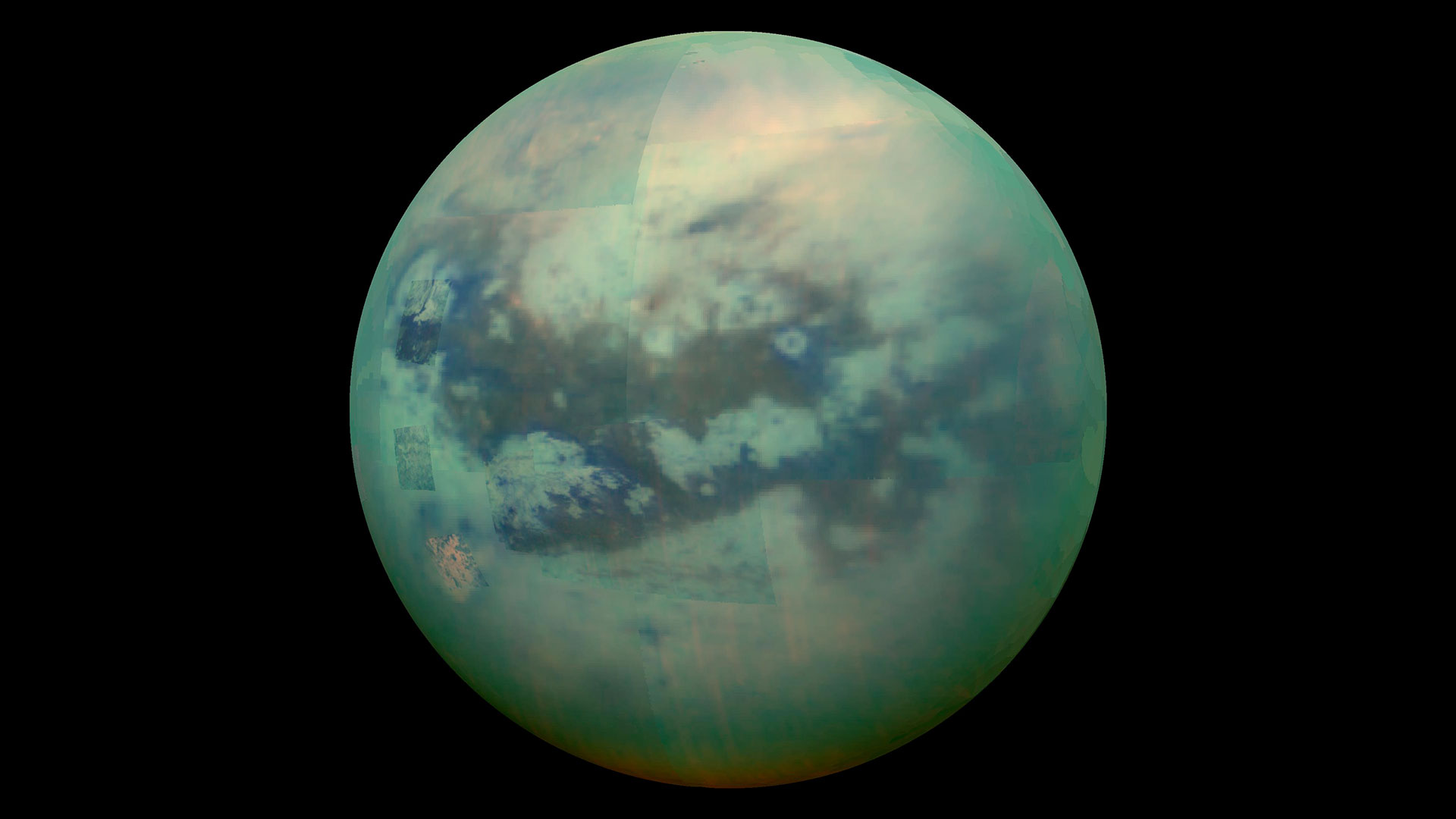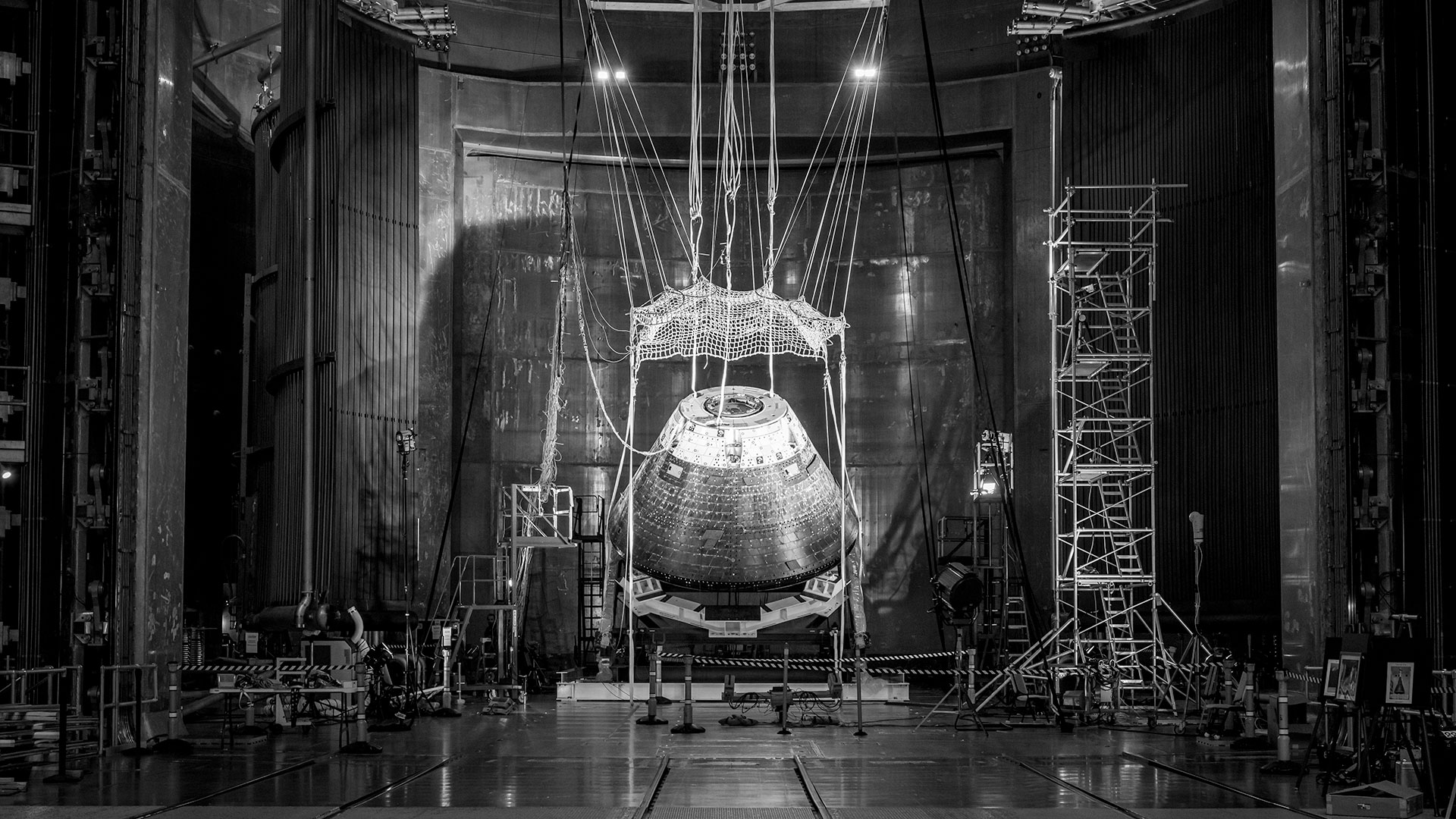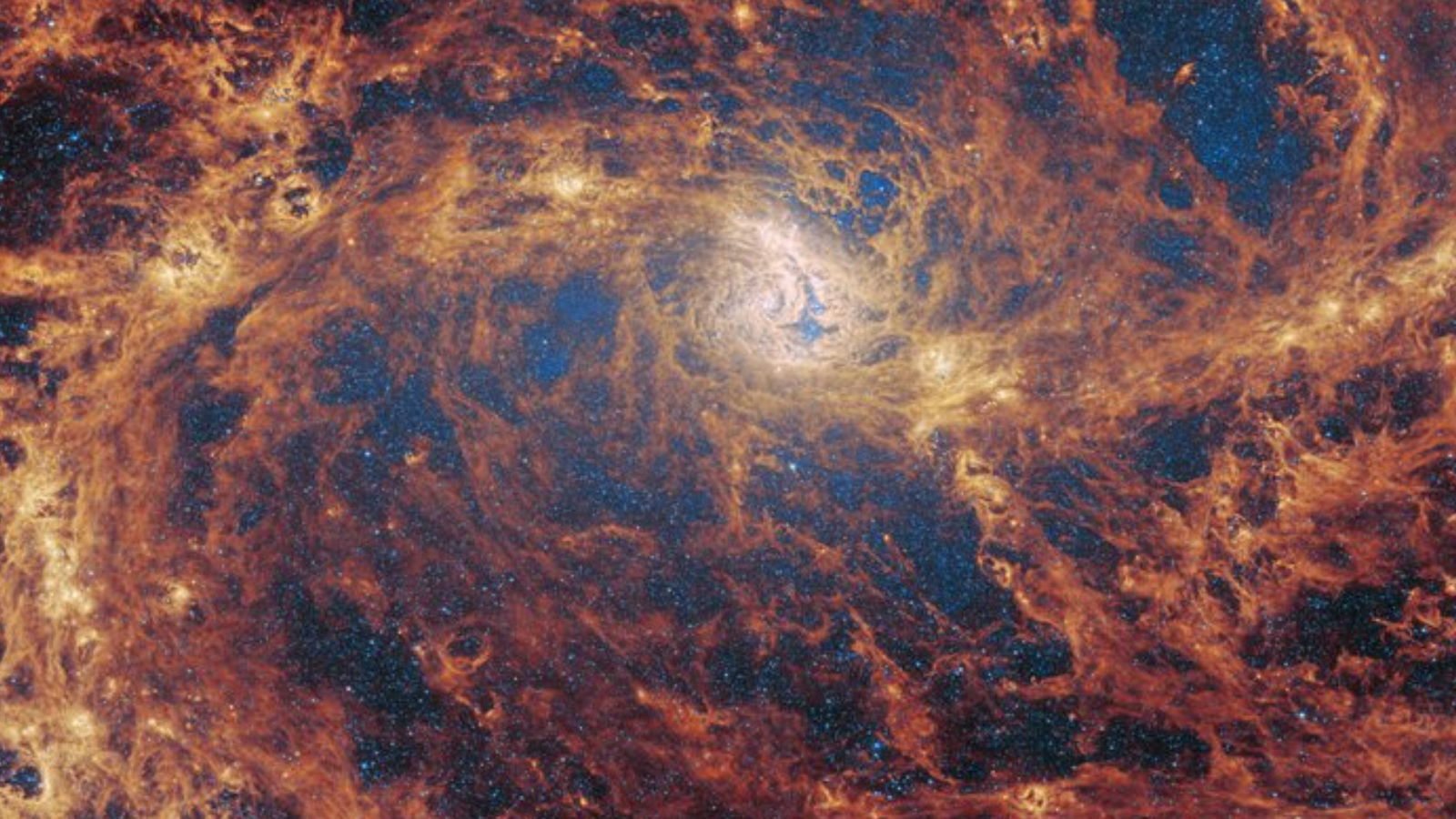
An astronaut got a blood clot in space —now our study shows how to best protect crew

This article was originally published at The Conversation. The publication contributed the article to Space.com's Expert Voices: Op-Ed & Insights.
Varsha Jain, Visiting Researcher at the Centre of Human and Aerospace Physiological Sciences, King's College London
You are locked inside and are encouraged to do one hour of physical exercise per day. You are isolated from the people you love, and there are limited forms of communication. And you know it will be months before life will return to normal. Sound familiar? This is what many of us are experiencing during these times of COVID-19 lockdown – but it also describes the life of an astronaut aboard the International Space Station.
There are, however, real physical risks to being in space. Earlier this year, an unnamed astronaut developed a blood clot in space for the first time – a common health problem which affects at least one person in 1000 on Earth. Now our new study, published in Aerospace Medicine and Human Performance, reveals what the risks of this happening again in space are – and how we can ultimately minimise them.
On Earth, blood clots commonly affect the lungs (pulmonary embolism) causing difficulty in breathing, or the legs (deep vein thrombosis), causing pain and swelling in the affected leg. The blood clot that occurred in space, however, was unusually positioned in the neck. Doctors on Earth applied an innovative treatment for the the astronaut in space by prescribing a mixture of injectable and oral medication – preventing a potentially mission-critical or even life-threatening event from progressing further.
Blood clots are life-threatening, as they can cause heart attacks or strokes and lead to huge health related costs on Earth. However, they are preventable and can be treated. We already know that factors such as obesity, a sedentary lifestyle, advancing age and smoking increase the risk.
The recent incident in space highlighted the need to find out whether astronauts really are at increased risk of blood clots in space, and what we can do to tackle them. If we want to send humans on long journeys to Mars and beyond it is crucial that we have this information.
Get the Space.com Newsletter
Breaking space news, the latest updates on rocket launches, skywatching events and more!
It is especially pressing for female astronauts. Many use the combined hormonal contraceptive pill to control their menstrual cycles in space – a known risk factor for developing blood clots. When taken continually the pill can stop women from having periods in space, which is difficult given that washing water is limited and changing sanitary products while floating in space is challenging.
Read more: How women can deal with periods in space
Our study examined the known risk factors for developing a blood clot, within a group of 38 female astronauts who travelled to space from 2000-2014, to understand if spaceflight causes any changes to the risk of developing a blood clot. This is the largest cohort study of female astronauts ever to have been conducted.
It showed that, on average, female astronauts were 44.6 years old during a long mission, an age at which the combined hormonal contraceptive pill would not usually be prescribed here on Earth because of the risk of developing a blood clot. The data showed that, after a spaceflight mission, the astronauts were not more likely to develop a blood clot than the average population.
The study also examined the change in blood markers from before and after spaceflight and found that the risk of developing a blood clot does not seem to increase by undertaking a spaceflight mission. This is reassuring, but it is important to keep in mind that the sample was still rather small.
What’s more, the astronauts may be protected because of the exercise they do, which reduces the risk. Their diet is also controlled, so they are receiving the optimal nutrients for their body and they are not dehydrated during their mission.
Lowering risk
That said, we have now seen that astronauts nevertheless can develop blood clots in space. Because of the huge risks of experiencing this in space, it is important that we lower the chances of it happening as much as possible. We recommend doing some extra blood tests prior to a spaceflight mission to help to evaluate an individual astronaut’s blood clot risk during astronaut selection and medical reviews.
Male and female astronauts all have the same intense pre-mission training schedules to ensure they are at the lowest risk of encountering health problems while they are in space. But activities during pre-mission training – for example long-haul travel or diving exercises to simulate the space environment – may transiently increase the risk of a blood clot developing. We therefore recommend that the timings of these events should be reviewed so that they do not occur in close succession, therefore inadvertently increasing the overall risk of developing a blood clot.
To further lower the risk, female astronauts could avoid using the combined hormonal contraceptive pill, which contains the hormones oestrogen and progestin. They could instead control their menstrual cycles by using progestin-only agents, which would further lower the risk of developing a blood clot.
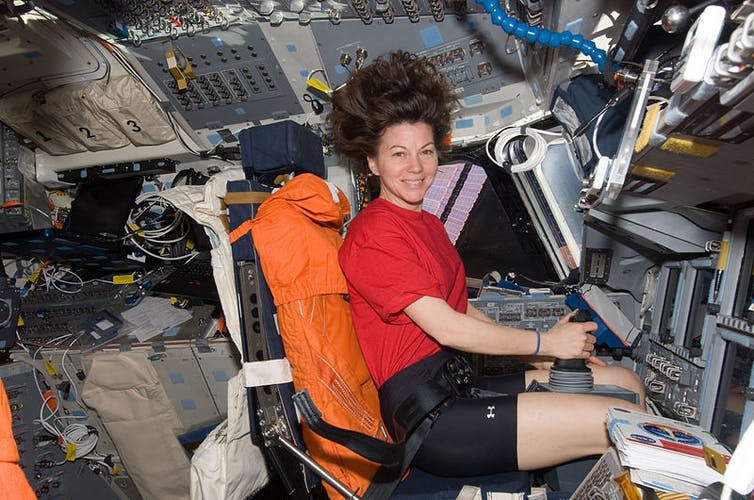
Oestrogen does have bone-protecting properties though. That’s important, as astronauts are known to lose bone density when they travel to space. So there could alternatively be scope for using a combination of progestin-only agents with added oestrogen during spaceflight – albeit with safer and lower doses of oestrogen.
The study also provides lessons for living in lockdown back on Earth. Those of us transitioning to working from home have a more sedentary lifestyle than normal. There are reports of many people consuming more food in a bid to ease the anxieties of lockdown. Now, more than ever, we are reminded that physical activity of at least 30 minutes per day are vital in reducing our own blood clot risk – with simple measures like walking around your home being efficient.
This article is republished from The Conversation under a Creative Commons license. Read the original article.
The views expressed are those of the author and do not necessarily reflect the views of the publisher.
Join our Space Forums to keep talking space on the latest missions, night sky and more! And if you have a news tip, correction or comment, let us know at: community@space.com.

Recently completed an NIHR Academic Clinical Fellowship in Obstetrics and Gynaecology, primary focus of research has been female health in relation to spaceflight. I have for example reviewed contraceptive devices available including those already used by military and aviation personnel, and calls for more research into the effect of hormone treatments on bone mineral loss in space.
-
kristianna276 The microgravity environment seems to develop a multitude of physical and physiological problems. Although, the joy of floating around like amoebas in a petri dish is overwhelming to astronauts, who would not love the rush of the feeling of the constant free fall. In Sci-Fi all the "advanced" space stations have the feeling of boring gravity where your feet are planted and you have to walk upright. The author claims that there are remedies for all that ails you in the astronaut core. A pill for all that troubles you. I have bills to pay. Is there a pill for that? So, when will we design space structures with gravity in mind? We need to bring with us food, water, shelter, gravity and purpose. Hey! We got four out of five. That can't be too bad? When we send astronauts off to Mars, how will they respond to an environment that is totally free of that free fall feeling? Some have informed me that the astronauts would be under the sun's gravity. Like Icarus, they would be falling towards the sun? How much mass would they have to be in order to be affected by the sun's gravity? Would zero gravity produce no motion in the ocean? After six months of travel towards Mars, would they be DOA? Has anyone done a computer simulation on this, and if not; why? We want to give sacrifice to the God Mars? Astronauts, you will be sacrificed for the good of all humanity. Your deaths will not be in vain; for it will be in space.Reply
